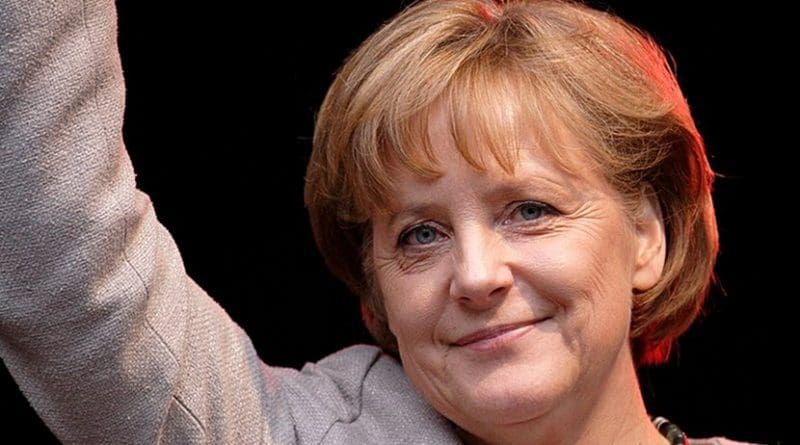Weakened Merkel Bad News For The Balkans – OpEd
By Marcus Tanner*
Like Britain’s Theresa May, Angela Merkel has come out of her general election looking a lot weaker than when she went in.
Weeks ago, the talk was only of how massive her new majority would be. Now, like Mrs May, she is back in office but not really in power.
In some ways, she did worse than Mrs May, who at least polled a respectable 43 per cent of the national vote. Mrs Merkel, by contrast, limped home with under 33 per cent, the worst performance for the Christian Democrats, the CDU, since the late-1940s.
As the main opposition Social Democrats, the SPD, fared even more badly, there is no doubt she will head the next government. But the mathematics of assembling a majority in parliament look complex.
As the SPD has refused to join a new coalition government with her, and as she cannot afford to go near the far-right Alternative for Germany, AfD, she will have to look for partners on the left among the Greens and on the right among the Free Democrats to get 50 per cent of the seats.
Assuming this so-called Jamaican coalition ever takes shape – so named after the parties’ respective colours – it is hard to see it providing Germany – or Europe – with much direction.
For the Balkans, and for the would-be EU member states in the region especially, this is not good news.
Croatia, Bulgaria and Romania are already inside the European club, and so can take more relaxed view of these goings-on.
But Serbia, Montenegro and Macedonia are still on the outside of the clubhouse, looking in. [The other states are so far off membership it perhaps matters to them less.]
A preoccupied, inward-looking Germany is just what they do not need.
One of the main advocates of the EU’s eastwards expansion, Britain, is already effectively out of the frame, busy trying to agree some sort of trading arrangement with Brussels before its membership card expires in the spring of 2019.
France was never much of an advocate of EU expansion, always fearing that the process would pull the EU eastwards away from its original Paris-Rhineland axis and dilute French influence.
It’s hard to imagine much energy coming from Italy or Spain, now increasingly convulsed by separatism in Catalonia.
Commission President Jean-Claude Juncker made a bold “state of the union” speech in mid-September hailing the revival of the European project in general and the revival of the enlargement process in particular. “The wind is in our sails,” he declared.
But Juncker delivered his upbeat speech before the wind started blowing in another direction, leading to shock result of the German election – shocking in terms of the strong showing of the anti-immigrant AfD, at least.
The idea had been that a revived France under Emmanuel Macron and a comfortably re-elected Merkel would lead this European renaissance together.
But now President Macron is battling the formidable French unions over his planned economic reforms while Merkel is – where?
Whatever coalition she assembles, she will have to spend much of her time looking over her shoulder at the AfD and doing her best to make sure it does not poach any more of her right-wing voters.
As for her possible Free Democrat partners, they are known for taking a very tough line on migration; they especially want speedier deportations of failed asylum seekers. It is hard to see them pushing hard for EU enlargement.
The Greens are friendlier to enlargement, but they polled less well than the Free Democrats and so would have the weakest voice in a putative “Jamaica coalition” government.
Not everything depends on the outcome of day-to-day politics coming out of Berlin, of course. Even with a preoccupied Germany led by a humbled Merkel, the enlargement process will, doubtless, inch its way forward.
But, without Berlin’s robust backing, the going is likely to be even slower than expected. The EU’s candidate states in the Balkans may have to get used to a prolonged stay in the waiting room.
*Marcus Tanner is an editor of Balkan Insight and the author of “Albania’s Mountain Queen, Edith Durham and the Balkans” [Tauris].
The opinions expressed in the Comment section are those of the authors only and do not necessarily reflect the views of BIRN.

